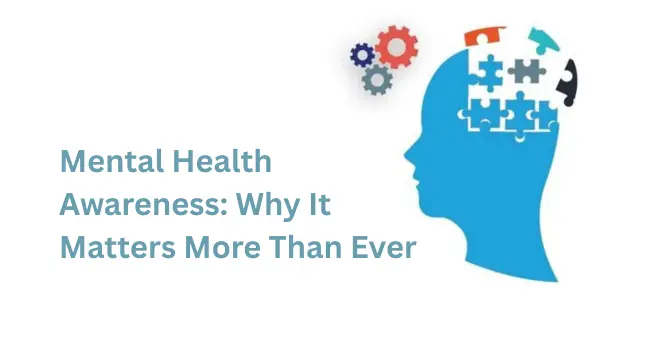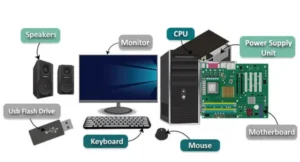Being conscious of our thoughts, feelings, and behaviors is critical to preserving mental health. It helps us realize when we or someone else needs support Raising awareness is critical, because many people battle with mental health difficulties. Mental health statistics show that one out of every five adults in the United States develops a mental disease each year. This means that many people are going through difficult times. Talking about it makes everyone feel more secure and less alone. Breaking the stigma requires no longer being afraid or shy about discussing mental health. We need to be encouraging and nice with one another. A clear call to action is to listen, care, and speak up. We can have a significant impact by spreading knowledge.
What Is Mental Health?
Mental wellbeing refers to how we feel within our thoughts. It is about our feelings and thoughts. Our mental health determines how we tackle situations. It affects how we feel every day Emotional well-being is a crucial part of being human. Good psychological health allows us to overcome difficulties. It enables us to cope with difficult situations.
Everyone has good physical and mental health. Our mental state might vary moment by moment. We could be pleased one day and unhappy the next. Mental wellness is more than simply not being unwell. It’s about feeling calm and strong within.
Good mental health allows us to make friends. It also helps us learn more effectively. Everyone, especially youngsters, should prioritize their mental health.
Why Is Mental Health Important?
Understanding mental health allows us to process our emotions. It is equally crucial as taking care of our physical health. Mental health affects how we learn in school.
It affects how we play with our buddies. Good mental wellness improves our problem-solving ability. The mind-body connection is quite genuine. When our brains are at ease, our bodies usually follow suit. Education about mental health tells us when to seek help. It teaches us to be fair to ourself healthcare and mental health. Doctors care about how we feel inside our minds.
Taking care of our thoughts is not just for grown-ups Children’s mental health is also important. Everyone deserves to be happy and tranquil. Learning about the psychology helps us all live healthier lives.
How Does Mental Health Impact Daily Life?
Every part of our existence is influenced by our thoughts. When we’re happy, school seems easier. Games are more pleasant. Friends are enjoyable to be around. However, stress can have an impact on both our physical and mental health. This can make even easy chores difficult to execute.
Everyone experiences stress from time to time. It’s the same as having too many things at once. We may feel alone even when around by others. A daily check-in with our feelings helps us notice changes.
Emotional weariness leaves us feeling empty inside. It is critical to talk about these feelings. Telling an adult when we’re feeling bad helps us feel better sooner. Taking care of our minds allows us to appreciate life more.
How Is Mental Health Connected to Physical Health?
Our body-mind link is quite powerful. They speak all day. When we are down, our bodies may feel ill. Happiness, on the other hand, frequently leads to a feeling of physical strength.
The link between physical and mental health is reciprocal. Long-term concern can cause high blood pressure. This causes our heart to work harder than it should. Immune function and mental stress are also linked. When we are under a lot of stress, our bodies struggle to resist pathogens.
Holistic wellbeing entails caring for all aspects of ourselves. It’s like a puzzle, where every piece is important. Walking can make us feel calmer. Getting sufficient rest helps our brain function better. When we care for our minds, our bodies reward us. When we care for our bodies, we feel better mentally.
What Are Examples of Mental Health Problems?
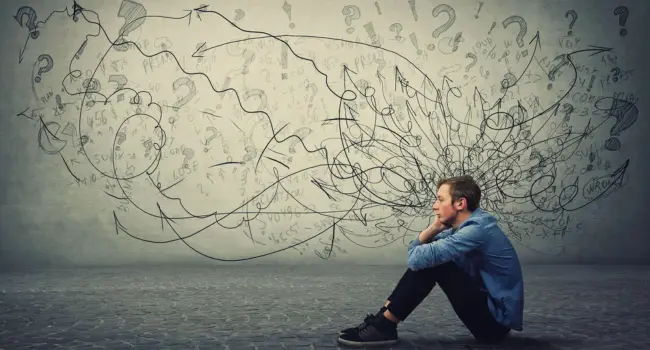
Mental health problems can impact anyone, including children. They affect how we feel and think. Some common instances include being really depressed or worrying a lot. These issues are common, and many people face them.
Anxiety and Depression
Anxiety occurs when we worry excessively about something. We may feel terrified even when there is nothing to fear. Anxiety disorders can cause rapid heartbeats. Our hands might shake. Our stomachs might hurt.
Depression causes people to feel exceedingly sad for a long time. Depression symptoms include a lack of desire to play or engage in recreational activities. People suffering from depression may experience persistent fatigue. They may not sleep or eat well.
Living with depression is challenging, but doctors can provide assistance. Coping with anxiety involves practice and support. Anxiety and depression are widespread issues. Many kids and adults have these feelings. The good news is that these issues can be alleviated. Talking to someone you trust is the first step toward feeling better.
Trauma and Addiction
Trauma happens when we are exposed to anything incredibly terrifying or devastating. It can cause our brain to become stuck in the terrifying situation. Adverse experiences as kids are negative events that occur while we are young. These factors can have an impact on how we feel as we get older.
PTSD develops when a distressing experience affects us for an extended amount of time. People suffering from PTSD may have frequent nightmares or acute terror. If someone do not seek treatment, the trauma they have experienced could last for years. Some people try to feel better by taking harmful substances.
Substance abuse refers to utilizing drugs or pills to relieve sadness Alcohol addiction arises when a person is unable to stop drinking, even if it causes harm. These challenges
can impact both children and adults. Doctors and counselors understand how to assist people recover from these challenging problems.
Other Disorders
Some people experience various types of mental health issues. Schizophrenia makes it difficult to discern reality from illusion. People may see or hear things that don’t exist or hear things that do not exist. Bipolar disorder affects how people feel. They experience highs and lows.
Obsessive-compulsive disorder (OCD) causes people to do things repeatedly. They may wash their hands several times or repeatedly check to ensure that doors are secured. Personality problems affect how people interact with others. This can make it challenging to make friends.
Psychotic disorders alter how the brain functions. Mood disorders cause strong emotions that continue for a long amount of time. These issues appear frightening, but doctors may assist. These issues can be relieved with medicine and consultation with experts. People with these diseases may live happy lives with the correct help.
What Are Warning Signs and Risk Factors of Mental Illness?
Mental disease affects one out of every five adults in the United States. Sudden mood swings and a loss of interest in enjoyable activities are red flags. Some people may struggle to concentrate or sleep. Risk factors can be hereditary and through, genes. Bullying and other social pressures might lead to issues. Environmental factors, such as your place of residence, are also important. Generational trauma can be carried down via families. Life situations, such as losing a job, can heighten risk. Mental disease can cause other health problems. Certain mental health conditions increase the risk of acquiring cardiovascular disease. Getting help as soon as possible is critical. If you observe these indicators in yourself or your friends, speak with a reliable adult. When feeling ill, everyone deserves to be supported.
What Helps Mental Health: Available Treatments and Resources
There are numerous strategies to care for your mental health. Therapy and counseling allow you to talk about your feelings with licensed mental health specialists. They educate you how to feel better. Medication management may be required to treat certain conditions. Mental health care is easily accessible in your area. Community mental health activities and services are also beneficial. To communicate with others, join online support groups. A mental health toolkit can provide ideas for staying well. Websites such as FindTreatment.gov offer directories for finding mental health services in your area.There are numerous options. You’re not alone. Help is always available when you need it.
6 Powerful Reasons Mental Health Awareness Matters
Mental health is really essential. Talking about it makes everyone feel safer and stronger. Mental health awareness helps people to care, share, and seek assistance when necessary.
1. Mental Health Affects Everyone
Mental wellness is crucial for everyone. It doesn’t matter how old you are. It can impact children, adolescents, and adults. Youth mental health is a major component of this. Many young people experience mental health issues. Every year, one out of every six young people suffers from a mental health disorder. That means many youngsters require assistance and care. Mental health in students is also a major concern. School can be difficult. It is OK to ask for assistance. Speaking with someone you trust can make a significant difference. Everyone deserves to be happy and safe. Mental health care makes this feasible for everyone.
2. Stigma Prevents People from Seeking Help
Some people are afraid to seek for assistance. They are concerned that others will judge them. This is known as stigma around mental health. Because of this, many people remain mute. They mask their emotions. But it’s fine to discuss mental health. We must remove the stigma so that more individuals can feel comfortable. Everyone needs help from time to time. When we mainstream mental health conversations, people realize they are not alone. Talking honestly encourages others to speak up. It demonstrates that seeking assistance is a strength rather than a weakness. Children, adolescents, and adults all deserve care. Let’s make it common to talk about our feelings and seek support when needed.
3. Early Intervention Improves Outcomes
Getting help early on makes a significant effect. This is known as early intervention. It implies seeking help as soon as indicators of a problem appear. The sooner someone seeks help, the better they will feel. It also helps to prevent things from growing worse. Early intervention makes mental health recovery simpler. People can heal faster and have happier lives. Prevention and education are also necessary. Learning about mental health allows us to recognize symptoms early on. It teaches us how to help both ourselves and others. Talking to a trustworthy adult or expert is an excellent starting step. Everyone has a higher chance of feeling strong and healthy if they seek treatment early on.
4. Mental and Physical Health Are Connected
Our minds and bodies function together. If one person feels horrible, the other person will as well. Taking care of your thoughts allows your body to feel better. This is known as behavioral health. When we experience mental health difficulties, we may feel exhausted or unwell. That is why it is critical to provide for both. Even in mental health and the workplace, stress and sadness can influence how we function. When we feel well inside, we perform better outside. Eating healthily, getting adequate sleep, and talking about your thoughts are all beneficial. It’s acceptable to ask for assistance. A healthy mind promotes a healthy lifestyle. Both are necessary every day.
5. Awareness Supports Prevention and Education
Learning about mental health allows us to stay healthy. Knowing more allows us to help ourselves and others. That is why mental health efforts are necessary. They show people how to care for their thoughts. Awareness initiatives also serve to dispel fear and ignorance. They demonstrate that talking about mental health is acceptable. Training and education provide people with the tools they need to succeed in school, at home, and at work. Mental health outreach helps people who need it the most. It reaches members of the community. When we learn early, we can prevent problems from becoming worse. Every day, we are strengthened, safe, and ready to help one another thanks to our awareness.
6. Professional Help Is More Accessible Than Ever
Getting help with your mental health is now easier. You can talk to anyone from your home. This is known as teletherapy. It allows you to communicate with a helper over the phone or via computer. Expert help, such as counseling and treatment offerings, is just a click away. You do not always need to visit an office. This makes it convenient for busy folks or those who live far away. Speaking with a reputable specialist can make you feel better. You can learn to manage tension, sadness, and worry. Many websites additionally provide tips and resources. Help is now available in a timely and secure manner. You’re never alone, and aid is always close.
Mental Health Awareness Across the Country
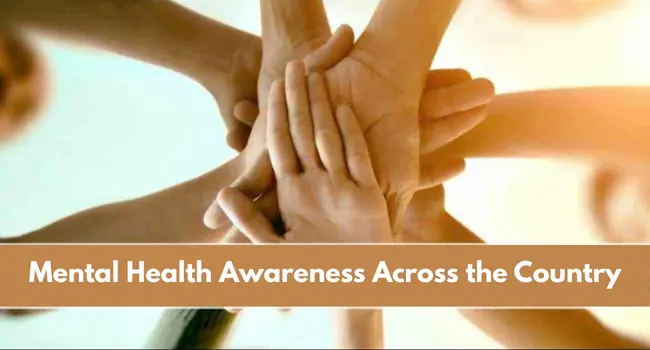
Mental health awareness is expanding across the country. People are finding out how to manage their ideas. Talking about feelings keeps everyone healthy and powerful.
The Reality in Georgia and Cobb County
In Georgia, individuals are working hard to promote mental wellness. Mental health programs, such as Mental Health Awareness Month, seek to raise awareness about the issue. They explain why mental wellness is vital. Schools and communities in regions like Cobb County are taking part. They help students and families learn and look for support. Community participation is critical in this regard. When people work together, they may have a significant impact. These measures also serve to close public health inequities. That means making sure that everyone gets the assistance they require. Everyone, regardless of location or identity, needs to be cared for. Awareness promotes hope and healing.
Psychiatry in Milwaukee: Learn More About American Behavioral Clinics
American Behavioral Clinics in Milwaukee assist people care for their mental health. They provide evidence-based care, which means that the assistance they provide is proved to be effective. These clinics adhere to well-established guidelines, such as those set by the American Psychological Association (APA). Support is available for people of all ages, from children to the elderly. This is known as Lifespan Outpatient Psychiatry. You can attend the clinic and return home the same day. The goal is to help anyone feel more comfortable and stay healthy.. Clinics also give useful tools and information. They care about the entire community. Mental health is vital, and aid is always available for those who require it.
Unique Perspectives on Mental Health Awareness
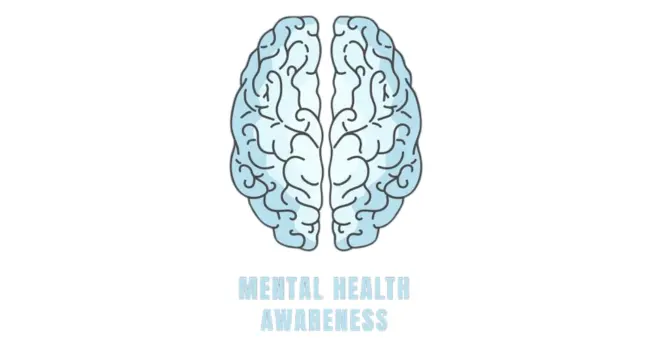
Mental health is seen slightly by all people. Sharing different ideas allows us to learn and care more. It develops mental health awareness all over families, schools, and communities.
Unmasking Our Minds: Why Mental Health Matters More Than Ever for Black Women
Black women’s mental health need extra care and attention. Sharing stories promotes recovery. Talking about feelings demonstrates strength. Mental health is more important than ever for strong, loving women.
The Emotional Toll of Living While Black and Woman
Being a Black woman may be quite challenging. Many people are stressed because they have been treated unfairly. This is known as the emotional toll of racism. It can damage both the mind and the body. Black mental health is vital and should be promoted. Some Black women feel pressured to always be powerful. This makes it difficult to seek for aid. Racial trauma (as defined by the APA) occurs when someone is repeatedly subjected to unequal treatment. It can cause severe agony. Speaking to someone and getting help can improve matters. Every woman deserves to feel safe and powerful. Mental health care can promote peace, healing, and hope.
Therapy Is Not a Trend—It’s a Lifeline
Therapy is more than just something people speak about. It is a wonderful benefit to those who are depressed, frightened, or hurt. Talking to a trusted friend can be beneficial, but it is not always enough. A trained assistance can provide sensitive care. They listen without making judgments. They assist you comprehend your emotions. Therapy teaches how to feel better and remain strong. It is not indicative of weakness. It’s a brave step toward mending. Many people of various ages attend therapy. It has the ability to change people’s lives. You never go alone. Help is always available. Taking good care of your mind is equally vital to caring for your physical health.
The Healing Is Ours to Claim
Everyone deserves to feel well and live peacefully. Healing begins when we care for our minds and hearts. This is known as radical self-care. It means putting oneself first when necessary. It’s okay to rest, seek assistance, and allow yourself time to recuperate. Honoring our mental health is a way to express love for ourselves. When we care for our emotions, we get stronger. We learn how to handle stress and have more delight. Healing doesn’t happen all at once. It requires time, attention, and support. But it is feasible. The first step is to believe that you are worth it and you are.
Why Mental Health Awareness Matters in the Workplace
Everyone benefits from having good mental health in the workplace. When people feel well, they perform better at work. Talking about stress and feelings is beneficial. It promotes a cheerful and safe environment.
The State of Mental Health in the Workplace
Many people experience stress and tiredness at work. According to a research, 85% of workers experience burnout. This suggests they are exhausted from job stress. These workplace anxiety numbers are serious. They show that more help is required. When employees are unhappy, it negatively affects the company. That is why organizational health is important. A healthy workplace helps everyone perform better.
Employee expectations for mental health are changing, with many demanding greater help, compassion, and understanding from their companies.. They require relaxation and companionship. Workplace mental health is as vital as job performance. When we care more, we work better together.
Why Workforce Solutions Matter More Than Ever
Helping employees feel better is critical today. People with good workforce mental health can perform well at work while also feeling pleasant. Companies are now implementing smart workforce solutions to accomplish this. These include programs that address stress, mood, and rest. When employees feel supported, they perform better. They also keep their jobs longer. This is a major component of talent management. It entails taking care of employees so that they can grow and remain robust. Mental health resources at work are more than just nice; they are essential. A healthy team builds a strong firm. When we care, we all perform better together.
The Power of Connection
Human connection is crucial in work. Individuals who feel connected
report feeling safer and happy.Talking and listening promotes trust. It provides a safe environment for talking. Workers can express their opinions and emotions without fear. This makes everyone feel included. A robust support network at work makes difficult days easier. People understand they are not alone. Simple acts such as saying hello or inquiring, “Are you okay?” can have a significant impact. When workers feel appreciated, they perform greater and smile more.. Connection creates a strong team. It benefits both hearts and minds. We develop, encourage each other, and make this an improved place for employees.
Supporting Emotional Well-being
Taking care of our moods at work is critical. This is known as emotional self-care. It helps us remain calm and strong. Talking about our feelings is a fantastic place to start. Sharing sentiments builds trust and support. We can also practice easy self-care techniques such as taking brief pauses, deep breathing, or going for a walk. These tiny deeds make us feel better. Workplaces can provide tools and tips that benefit everyone. These are known as coping methods. They educate how to deal with stress and remain happy. When we look after our brains and hearts, we perform better at work. A cheerful mind contributes to a more positive and nicer workplace for everyone.
Next Steps
Companies can improve productivity by concentrating on mental health support. One way is to coach leadership teams. Leaders should learn to help people and be sensitive to their feelings. When managers understand mental health, they may foster a more positive work environment. Leadership support is vital because it serves as a good example. When leaders listen and assist, everyone feels secure and appreciated. Training teaches leaders what to say and do. It also shows workers that their health is important. Simple tweaks can make a significant difference. A good team begins with compassionate leaders. By implementing the next actions, workplaces can become healthier, happier, and more supportive of all employees.
Insights from Damon Maassen, CPTD
Damon Maassen, CPTD, offers helpful insights into workplace training and growth. His ideas build teams. He makes all feel supported and motivated to do their best.
Why Mental Health Awareness Matters
Damon Maassen discusses mental health activism and why it matters. He believes that we must care about how people feel at work and in life. Organizations like Mental Health America (MHA) assist by disseminating information and tools. They teach people how to help others. Damon wants everyone to feel comfortable and welcomed. He encourages us to consider and reinvent how we approach mental health. That involves considering what we can do better. We should express our feelings, engage more, and be polite. When we work together, we can achieve significant improvements. Being healthy includes maintaining one’s mental wellness. When we care, we create stronger teams and better environments for growth.
Inclusive Ways to Recognize Mental Health Awareness Month
Mental Health Awareness Month takes place in May. It’s a great moment to talk about emotions and brain health. Schools should display colorful posters encouraging students to be kind to themselves. During dinner, families can share experiences on how they deal with difficult emotions. Many municipalities host mental health fundraisers, such as fun runs or bake sales. The money benefits those in need. Libraries frequently sponsor reading clubs focused on inner strength. Community centers provide outreach activities in which professionals answer questions. Hospitals offer free emotional check-ups. Wellness walks are held in parks and are open to everyone. Wearing a green ribbon indicates that you care about mental health. Small actions can have a great impact. Everyone wants to be healthy and joyful.
The Intersection of Mental Health and Diversity, Equity, and Inclusion
Mental health is integral to our identity and way of life. This is known as intersectional. People’s life experiences varies depending on race, gender, or background. To help everyone, we need to apply cultural awareness. This entails learning about other cultures and showing respect. Systemic oppression can have a negative impact on people’s mental health. That is why it is critical to provide safe and fair environments for everyone. When we understand each other better, we can provide genuine assistance. Discussing these difficulties helps us progress. It also contributes to making the world a better and more welcoming place for all.
Reflections and Insights from Headspace’s Workforce Report
Headspace’s report describes how work life is changing. Many people are increasingly working from home. This can lead to remote job stress. It’s difficult when home and work combine too much. That is why work-life balance is so vital. People feel better when they get enough rest and operate efficiently. The report also discusses employee involvement. This involves making employees feel connected and cared for. When employees are satisfied, they produce better work. Giving breaks, support, and time off can be quite beneficial. It demonstrates that mental wellness at work is really important. These insights can help employers care more and create a healthier, kinder workplace for all.
Final Thoughts
Mental health awareness helps us create a nicer world. It all starts with mental health literacy. That entails learning simple strategies to comprehend sensations and thoughts. Remember, you are not broken. Everyone struggles from time to time. We can all make time for silent reflection. It makes us feel more relaxed and strong. Try to be present for yourself every day. That could include sleeping, chatting to someone, or simply being gentle to your mind. A minor alteration in perspective can make a significant difference. Helping people and talking honestly relieves shame. When we care, we all grow together. You’re not alone. Asking for help demonstrates strength, not weakness. Mental wellness is important for everyone.
FAQs
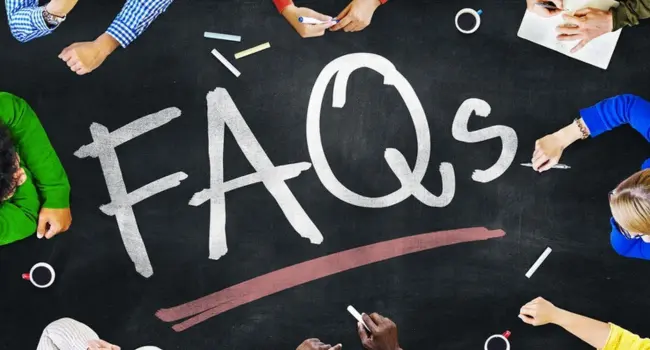
What is mental health?
Mental health refers to our thoughts, feelings, and actions. It helps us deal with life. A mental health problem or disorder can complicate things, but there is aid available.
Why is mental health awareness important?
Mental health awareness allows people to spot problems early. A mental health promotion educates others. It also helps to reduce stigma, so more people are at ease asking for help.
How can I help raise mental health awareness?
You can engage in educational programs and spread essential information to others. Joining community-based activities also helps. Small actions can have a great impact.
What are signs that someone may need mental health help?
Sadness, isolation, and a loss of interest in enjoyable activities are all typical signs. Anxiety in youth might look like this. Look for suicidal ideas or statements of giving up.
Where can people go for mental health support?
There are numerous resources available for mental health support. You can call the National Suicide and Crisis Hotline (988) at any time NAMI, a mental health support organization, can also aid.

